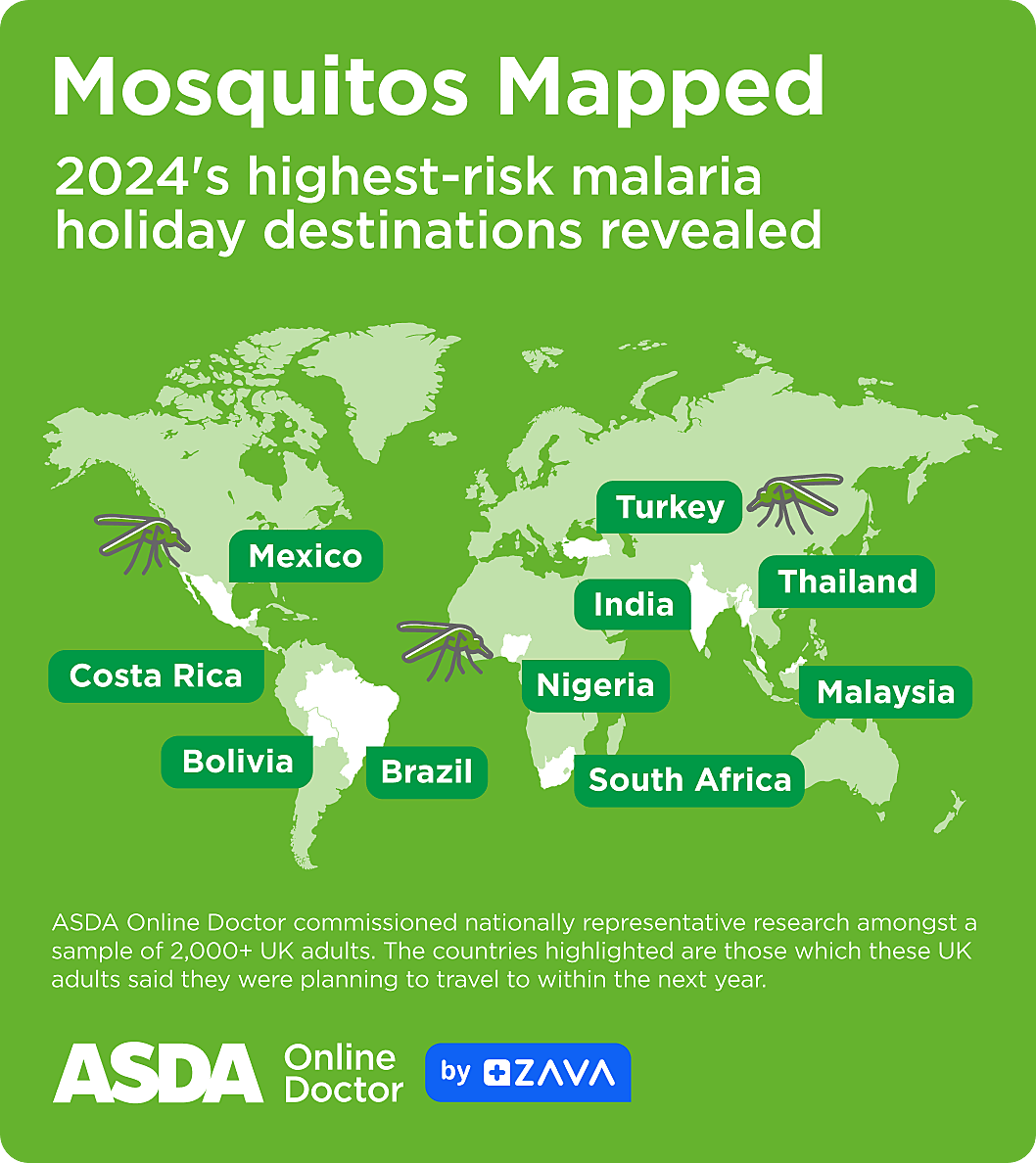Malaria Guide - Tips on How to Prevent Malaria

What is malaria?
Malaria is a disease caused by a bite from an infected mosquito which transfers a parasite into the bloodstream. It is a preventable and curable disease, and it cannot be spread from person to person.
While malaria is not found in the UK, it is common in many countries across the world. Malaria risk is higher in tropical climates where mosquitoes live, including Central and South America, Africa, South and South-East Asia and some Pacific islands. Brits travelling to these regions should take precautions to avoid mosquito bites and prevent malaria.
What are the symptoms of malaria?
Malaria can be difficult to spot but the main symptoms are:
- A high temperature, sweats and chills
- Headaches
- Fatigue
- Loss of appetite
- Nausea, vomiting and diarrhoea
- Muscle pains
- Yellow skin or whites of the eyes
- A sore throat, cough and difficulty breathing
Symptoms usually take seven to 18 days to appear after you’ve been bitten by an infected mosquito. Sometimes you may not have symptoms for months after travelling and in rare cases, it may be years.
The ‘ABCD’ guide to malaria prevention
Before travelling to destinations at risk of malaria, remember the ‘ABCD’ of malaria prevention:
- Awareness of risk – Before travelling, check the risk of malaria at your destination
- Bite prevention – As malaria is spread by mosquito bites, make sure you know how to avoid getting bitte
- Chemoprophylaxis (antimalarial medication) – Malaria tablets help to reduce the risk of contracting malaria if you’ve been bitten
- Diagnosis – If you travel to an area with malaria risk and develop any symptoms while abroad or up to a year after returning, immediately seek medical attention
Top tips for preventing malaria
Alongside the ‘ABCD’ malaria prevention, here are some five tips to avoid the disease while on holiday:
- Check your level of malaria risk – The risk of malaria can vary a lot, even within one country. It’s important to consider the time of year you are travelling, where you’re staying and how long for, and the activities you plan to do.
- Keep away from mosquitos while sleeping – Avoid sleeping outside or in areas where mosquitos live, like standing water or lakes. If you’re sleeping in a tent, make sure they aren’t any holes and keep the door closed at times. When staying indoors, ensure there is air conditioning and mosquito screens on the windows and doors. If this isn’t possible, keep doors and windows closed and sleep under a mosquito net that has been treated with insecticide.
- Use mosquito repellent – On top of your suncream, use insect repellent containing diethyltoluamide (DEET) on your skin and reapply frequently, especially in the evenings. We recommend using repellents with at least 20% DEET concentration which should last for roughly one to three hours. This protection increases to up to around six hours for 30% DEET while 50% lasts for approximately 12 hours. You can even spray permethrin, another type of insect repellent, on your clothes for extra protection.
- Cover up – In the day and at night, wear long-sleeved clothing and trousers to cover your skin. The less skin exposed to mosquitos, the better.
- Take malaria tablets – Depending on the malaria risk at your destination, it might be necessary to take malaria tablets to help reduce the risk of contracting malaria if you’ve been bitten. Before you go on holiday, speak to your doctor about getting the right malaria tablets as well as when and how to take to them.
Need malaria tablets before your next holiday?
Asda Online Doctor prescribes two forms of malaria tablets with different active ingredients, including Maloff Protect and Doxycycline. Speak to your doctor to find out which malaria tablet is best for the country you’re visiting.




(Reviews are for ZAVA UK)


GMC: 7074021

GMC: 6149061

GMC: 7085115







